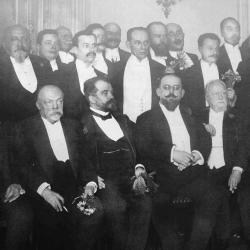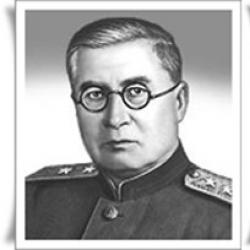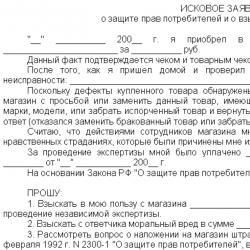Why do we need a native language? Essay on the topic: “Why am I studying Russian? Does a person need a native language?
I was at my son's class meeting. We discussed different things. And as always, once again a complaint was heard from some parents: “As many as five lessons are allocated for the Tatar language. We can't cope. And in general, why do we need this language and what is the use of it?”
I won’t surprise anyone if I say that similar complaints are heard at every class meeting. And in the Tatar gymnasium. And the Tatar parents complain!
We have become so mercantile that we measure everything with money. I may be exaggerating a little, but in the end it all comes down to this. The Tatar language is not needed because it does not bring practical benefits. Why study it if it doesn’t help us get into university or even college? There is nothing interesting on TV in this language. On the radio there is a complete mockery of the language by upstarts who believe that they speak Tatar. Sometimes you can’t even buy bread in a store if you ask for it in Tatar. Then why is it needed?
There are things that are very difficult to explain in words. We feel them with our hearts and souls. It is difficult to describe to a person blind from birth what they are like - blue sky, green grass, sea distance...
Think about it, why do we love our parents? Because they fed us, clothed us, educated us, bought us a computer? What if they couldn't do it? Imagine for a moment that you were born in the poorest country in Africa, where people live from hand to mouth. You have parents, but you are always hungry. Your clothes are bad, you can’t even dream of education... Will you really not love your parents?! It always makes me laugh when, at the end of the wedding, the newlyweds get up and start thanking their parents. It's not funny that they do it. And from what they say. Usually the following words are heard: “I thank my parents for ...” Then someone says: “... they gave me an education, for raising me, for making me a human being,” etc. But After all, this is not the only reason we love our parents! What about children? Why do we love children? In most cases, they do not bring any practical benefit. So why do we love them? Think! Wow!!! No way! But simply because they are ours, our relatives! What do we call our language? Right! To my relatives! And you can’t love your relatives for this or that. We just love them.
But, of course, regarding the native language one cannot say that it is of no use. It’s just that this benefit cannot be immediately seen, touched, or put in your pocket. The mother tongue is the cornerstone of spirituality, due to the absence of which we lose our human qualities. Unfortunately, even our religious leaders do not understand this. They think that spirituality is only religion, or at least art. How else can you understand if a mullah invited to a Tatar house speaks Russian! In the mosque he addresses parishioners in the same language, although most of them are Tatars?!
Our enlightened clergy think that language is just a collection of sounds. For example, like the barking of dogs, the bleating of sheep, the creaking of a wheel... And what will our ordinary fathers and mothers do if even doctors of philological sciences who have made a career in the Tatar language “forgot” to teach their children to speak their native language?! They did not understand the main thing, although they repeated this many times. Language is the soul of the people. From generation to generation it was passed on through language. And just imagine, you decide that your child does not need a native language. What's happening? You are robbing your child of his soul. Without blinking an eye, you tear it away once and for all from the information field of the people and ancestors. No, he will live. But part of the heart will remain empty. Because you made him a nobody! Because he cannot speak his native language even with his own grandmother, he will not cease to be a Tatar and will not become Russian (although you secretly wanted this, right?), but he will no longer be native to the Tatars.
As a result, one is among strangers, a stranger is among one’s own. Although no, he won’t be able to become one among strangers either. Genes don't allow it. I didn’t show my face, so to speak. In a few generations, when your grandchildren and great-grandchildren marry representatives of other tribes, perhaps your dream will come true. But not on your child. He will remain a nobody! Although of course you can try. Moreover, the population census is ahead. Sign up as whoever you want, my dear. Just think about what you did from time to time and look yourself in the eyes through the mirror. Maybe you will feel something, my practical one.
Ask, why don’t I write such things in my native language? But you don’t read it, do you, my “relatives”?..
Oleg KHISAMOV
Ask a question to the Pension Fund of the Republic of Tatarstan
Ask any question to a specialist from the Pension Fund of the Republic of Tatarstan, indicate your return address and receive a detailed answer to your email. Read alsoPartner news
Lord, 09.24.2010 11:18:14
Guest, 09.24.2010 15:42:34
Guest, 09.24.2010 16:45:58
Guest, 09.24.2010 17:17:56
Guest, 09.24.2010 17:55:50
Guest, 09.25.2010 3:10:36
Yellohim, 09/25/2010 20:47:46
Guest, 09.25.2010 23:22:20
Guest, 09.26.2010 12:39:03
Guest, 09.26.2010 14:14:37
Anna, 09.26.2010 16:37:36
Misharin2006, 09.26.2010 18:10:56
Misharin2006, 09.26.2010 18:11:57
Misharin2006, 09.26.2010 18:14:08
Rail Gataullin (belem.ru), 09.26.2010 19:25:41
Misharin2006, 09.26.2010 20:00:05
Guest, 09.27.2010 1:53:25
Bibliographic description: Khadieva N. N., Bulatova L. A. Why you need to learn your native (non-Russian) language // Young scientist. 2016. No. 3. P. 14-16..07.2019).
Keywords: Tatar language, student motivation, Tatar people, Tatar culture.
Oh, how good is the native language, the language of father and mother,
I have forever comprehended many things in the world through you!
At first, the mother sang in this language, shaking the ripples,
And then my grandmother tried to calm me down with a fairy tale.
Native language, you helped me understand and joy from an early age,
And the pain of the soul, when the clear light fades in the eyes.
You, my native tongue, helped me say the first prayer:
“Forgive me, father and mother, be generous, my God!”
Gabdulla Tukay (translation: A. Chepurov)
By the Law of the Republic of Tatarstan “On the languages of the peoples of the Republic of Tatarstan” dated January 12, 2013, the Tatar language, along with Russian, was declared the state language. Since then, disputes have not subsided over whether it is necessary to learn the Tatar language at school. Parents of school students even go to rallies where some fight for teaching the Tatar language, while others fight against learning the language.
Opponents believe that studying the Tatar language in schools leads to children knowing Russian worse than they could. For example, in an address to the President, they wrote that “the Russian language in the schools of the national republics is in a dire situation, it is studied only at a basic level, due to the study of the national languages of the republics, and that this threatens interethnic relations and the unity of the country.”
However, an analysis of publications on the Internet, an analysis of various surveys and studies showed that in Tatarstan there is no evidence that the Russian language is not taught enough and the results of the Unified State Examination in the Russian language in Tatarstan are slightly higher than the average for Russia.
It is also not true that in Tatarstan schoolchildren study the Tatar language 5–6 hours a week for 11 years. The volume of teaching the Tatar language nowhere, even in schools with partial instruction in the Tatar language, does not exceed the volume of Russian, amounting to 1000–1100 hours over 11 years of study.
It seems that conflicts around the study of the Tatar language mainly arise due to neglect and disrespect for the Tatar language.
Teachers at school, of course, help students learn the Tatar language and try to make classes interesting. For example, in Tatar language lessons in the second grade, students of our school study the coat of arms and flag of the Republic of Tatarstan. Various competitions related to Tatar culture and the Tatar language are held, for example, the Tatar national costume competition. Events are held dedicated to the great Tatar poets and writers.
However, schoolchildren study foreign languages, for example, English with great pleasure, because they believe that knowledge of English will be necessary in their adult life and profession, and knowledge of Tatar will be less useful to them. Let's try to answer the question: why does this happen?
Today, children whose parents studied in the 80s and 90s are studying in schools. At that time, the Tatar language was not a compulsory subject to study in schools. And children from mixed families, in which the father or mother were Russian by nationality, refused additional classes in the Tatar language because they did not want to learn an additional subject. Their parents were not against it and did not insist. Representatives of that generation, of course, subsequently encountered difficulties in communication, in their professional activities, difficulties in helping their children complete lessons in the Tatar language, but few of them support the study of the Tatar language.
Often the parental attitude extends to the student’s attitude towards the subject, and problems that arise, in turn, during the learning process affect the parents’ attitude towards teaching the subject. Unfortunately, even among Tatar parents there are those who oppose compulsory learning of the Tatar language.
It seems that a lot depends on the parents, because the family is very important for the child and the opinion of family members is of paramount importance for the children.
I would also like to note the following. To learn English, many colorful and interesting video lessons have been created, CDs, books, various textbooks, workbooks, educational materials, etc. are sold. There are special English camps for children. When, even in Kazan bookstores, you can find a limited number of works of Tatar literature. This happens not because they are not published, but because stores purchase such books in limited quantities, considering them non-commercial. There are very few children's fairy tales in the Tatar language. What was sold was very expensive. I think that many would like to have in their home library the works of such writers and poets as A. Kutuy, M. Jalil, G. Tukay, A. Absalyamov, A. Alish, S. Hakim.
Not a single beautiful color publication about the history of the Tatar people was found in any of the six bookstores.
Of course, the Government of the Republic of Tatarstan is developing various programs to popularize the Tatar language and culture. On the website http://anatele.ef.com, in accordance with the instructions of the President of the Republic of Tatarstan Rustam Minnikhanov, there is a project for teaching the Tatar language “Ana Tele”. There are other training sites as well.
A big plus in teaching the Tatar language is that there are many Tatars around, we can hear Tatar speech everywhere, signs of shops and institutions are placed in two languages, there is national television and radio. Tatar channels show video lessons of the Tatar language. They began to make films in the Tatar language based on the works of the great classics of Tatar literature, for example, a film was made based on the famous book by A. Absalyamov “White Flowers” about the work of doctors.
For several years now, Kazan Federal University has been hosting free courses for everyone who wants to learn the Tatar language. In these courses, more than half of the students are those who came from Ukraine, Moscow, Uzbekistan, Bashkortostan, and there are even students from Africa. And many of them are in the city of Kazan temporarily, during a period of study or a work contract, but they came to learn the Tatar language as a sign of respect for the great republic and the Tatar people, and they consider learning the Tatar language a necessity.
You need to know the history of your native land and people, study folk art, listen to folk classical music. When children begin to respect their people and be proud of them, they will want to know the Tatar language as the language of the republic in which they live.
Learning any new language helps people learn other languages more easily and improves their knowledge of their native language. When studying national languages, schoolchildren get acquainted with the history of the people and their culture. This promotes better mutual understanding between peoples.
Literature:
- Garyapova G. N. Problems of increasing the motivation of teaching the Tatar language to Russian-speaking students in secondary schools. Festival of pedagogical ideas “Open Lesson”. http://festival.1september.ru/articles/647345/
- Resolution of the Cabinet of Ministers of the Republic of Tatarstan dated December 31, 2013. No. 1125 “On approval of the Regulations on the use of state languages of the Republic of Tatarstan and other languages in the Republic of Tatarstan when organizing and conducting cultural events.”
- Facts and fiction about teaching state languages in Tatarstan schools. No format. RU. http://kazan.bezformata.ru/listnews/gosudarstvennih-yazikov-v-shkolah/33886041/
Keywords: Tatar language, student motivation, Tatar people, Tatar culture.
Annotation: The article discusses the problems of learning a native (non-Russian) language, provides a brief analysis of publications on the topic under consideration, and provides survey data.
Chuvash language is the language of my parents, my family and my people! I am very glad that my father instilled in me a love for my native language. And I never had a question: why should I know my native language?! This is probably already a part of me.
CHUVASH is a language that I am not ashamed to speak, a language in which I express my love for my parents, my native land, the place where I was born and raised! But why does such a question arise among modern Chuvash youth? I asked a polyglot friend about this. He answered me that each language is a certain worldview, the way the people understand the world around them. For example, the expression “play an instrument.” In Russian, “to play” is self-indulgence, not serious. In Italian they literally say “to sing on an instrument”, in Chuvash “to speak on an instrument”. Here's an example of how these three nations approach the processes of live music reproduction. That's why you need to learn your language - the culture is hidden here!
Alena Ilgacheva, Chuvashia: “At my school, the influence of the West had a huge impact... Everyone had English in fashion, Western traditions, European culture... The Chuvash language and culture were considered useless classes, everyone actively skipped them... Although we also had those in our families who spoke in Chuvash, but they were very shy and hid it. Now everyone has left, and I won’t say that they “know and honor” the culture of their homeland... This is terrible... So he disappears... I studied at a music school and college in Cheboksary. This is the most luxurious education that you can get... Here, through music, the culture and traditions of the Chuvash people were instilled, everyone really liked studying, it was interesting, and the teachers all loved the music, the children... Studying the history of Chuvash music, I was very struck by the dissonance of the fact that The Chuvash, it turns out, are the most musical people; libraries contain books that describe this in detail. Among the Chuvash, a person who did not sing or could not play a musical instrument was considered an outcast. They talked in songs, “the best gift is a song,” they communicated with nature through song. There is a lot of evidence, memories of people of this type: “that guy on the harmonica could play any song on the move, he was a Chuvash”, “this guy came from Chuvashia in the army, sang beautifully”... And these round dances are like streams... Motifs of Chuvash music according to the structure is similar to the Chinese... The dissonance arises in the fact that in the general school history we were taught that the Chuvash are pagans, and we read many texts on the program about how they suffered from Christianization, that they were not literate and that writing appeared recently... And this amazing musicality was of no interest to anyone in school general history... Only dry facts that need to be put into everyone’s heads every year so that the system imposes...”
Olga Nikiforova, Chuvashia: “I’ll tell you a little about myself, I was born into a military family, we lived in different places in the country, most of the time in Ryazan. My parents didn’t speak Chuvash to me at home; they only communicated with each other. I learned the language in the summer in the village, communicating with local children and my grandmother. And I really wanted to understand what my parents were talking about! I remember how at the age of 10-11, living in Ryazan, I missed Chuvashia, listened to songs, wrote letters, and really wanted to return! And when we moved here, I thought that I would not master the school curriculum in the 7th grade in the Chuvash language. But how surprised I was when I realized that I knew the Chuvash language better than 70% of the students in the class. I noticed that love and patriotism for language and culture are strongest when you live in a foreign land. When we were in a Chuvash taiga village last summer, I heard from a local 7-8 year old girl, “I don’t want to learn English, I want to know Chuvash.” It was very sweet and painful at the same time!”
Irina Ershova, Moscow:“When I was writing my dissertation, I was lucky enough to meet the deputy general director of a power equipment plant from Nizhny Novgorod. One day he asked: “How? You don't know how to speak Chuvash? Is this your native language? He was heartily surprised! Since 2011, I have felt a sense of shame that I cannot speak the Chuvash language. Yes, I understand it, since my parents speak it, but I don’t speak it myself. Why know Chuvash? Why do you need to know the history and culture of your native land? Strange questions... Why do you need to know mom and dad?! This is love for your small homeland!”
Anastasia Akhmerova, Ulyanovsk: “The Chuvash language is our native language. The language of our parents and ancestors. And who, if not us, should continue the traditions of our people and develop culture? And you know, in Ulyanovsk I hear Chuvash more often than in Cheboksary. Yes, English and Chinese are valued now. But what’s wrong with the fact that we will also know our native Chuvash?”
Sergey Ivanov, Moscow:“The Chuvash language and people today are threatened not by Russification, but by globalization. Please note that the majority of parents of schoolchildren who advocate reducing the hours of the Chuvash language in school cite one of the main reasons not as the desire to learn more Russian, but to know English better. Then the question arises - where should the Chuvash language and culture go? The answer was given to us a long time ago by G.N. Volkov in the form of the concept of ethnopedagogy. The concept of “Çich. drank", "Seven Blessings" is what is missing in today's young generation. The Chuvash language should have not only a communicative, but also an axiological function - the transmission of moral values. This does not happen in school today; there are no lessons in kindness, respect, honoring elders and instilling a love of work. Classes in the Chuvash language and culture could fully compensate for this component. For this, new educational programs are needed, we need to move away from the traditional teaching system and take an example from the Finnish educational system with its freedom of self-expression and attitude. Regarding the need to know the Chuvash language and pass it on to descendants. Personally, in addition to my love for the melodic tints of my native speech, I am clearly aware of the price at which we got this heritage. I can imagine how our people defended it in hard times, in difficult times, fleeing from invasions and defending their freedom and the right to speak their native language. Can this be called a moral duty, an act of respect for one's ancestors? Absolutely yes. It’s easy to forget your language, to give it up, to try to preserve it and pass it on to your children - only strong people can do it, let’s face it.”
Yan Fedorov, St. Petersburg: “It would be nice for me to know him so that I can communicate freely with my relatives. There are families where Chuvash is spoken at home. As long as there are such people, culture and language will not disappear. Young people are active in some places (Naberezhnye Chelny, Kazan), in others they are not so active (Tallinn, Krasnoyarsk). But a lot depends on her, on the youth, on us.”
Igor Ananyev, Norway:“In Norway, many Chuvash speak Chuvash. The Chuvash language is a little similar to Norwegian, and it is easier to learn Norwegian, often the words are the same. I sometimes shoot videos from Norway in Chuvash. When Norwegians speak Russian they have a Chuvash accent. Norwegians pronounce the word “hall” as “sal”. There are few letters “g, d, zh, z”; Norwegians have a soft language, like Chuvash. Chuvash “pike” Norwegian also pike, skole skule - school.”
Ekaterina Danilova, St. Petersburg:“Although I grew up among native speakers, I was interested in our culture from childhood, but no one could teach me our embroidery, making national jewelry, I greedily absorbed traditions, listened to songs, dialect - this is still preserved in the village. Now I'm trying to master the rest. Knowing your language, your culture and continuing to study it with other languages and cultures, you begin to appreciate other languages and other cultures and respect people who are speakers of other languages and cultures and everyone in general. My native language and culture teach me to respect others, they educate me every day. Understanding this does not come immediately, and this cannot yet be explained to children. But when adults come to me at the Chuvash Language Club, which I have been leading since 2014 in St. Petersburg, and say that they regret not knowing their native language, I am once again convinced that we will be guilty before the next generation if we do not Let's pass on this cultural code to them. And it’s unique here, I’m convinced of this every time I talk about Chuvash at language festivals and other events.”
Alina Shishkina
The school's mission is to prepare highly educated, competitive graduates – bearers of spirituality, morality, patriotism, ideas of renewal based on the preservation and enhancement of regional and Russian traditions; capable of realizing their knowledge and competencies in personal and public life, in consciously chosen professional activities; ready for continuous self-education and self-development.
Main activities:
- In-depth study of subjects: Russian language, Russian literature, English, history, social studies, computer science and computer science.
- Innovative program “Mission of a comprehensive school in the implementation of the Scheme for the integrated development of productive forces, transport and energy of the Republic of Sakha until 2020.”
- Concepts: “Formation of the mentality of children and adolescents based on the spiritual heritage of A.S. Pushkin”; “Support and development of reading at school No. 5.”
- School target programs: “Gifted Children – 2”; "School Technopark"; “Formation of ethnocultural competence.”
- Programs: “Program for the formation of spiritual and moral values of children.”
Total number of classes: 33, number of students – 1183. The number of classes studying the Yakut language as a native and as a state language, the culture of the peoples of the Republic of Sakha (Yakutia) is presented in the table:
Teaching subjects of the national-regional component is carried out by teachers of various academic disciplines - native speakers of the Yakut language and experts in culture, among them:
| 1. | Primary school teacher | 7 |
| 2. | Teachers of the Yakut language and culture of the peoples of the Republic of Sakha (Yakutia) | 3 |
| 3. | Physics teacher | 1 |
| 4. | Librarian | 2 |
| 5. | Teacher of fine arts and art school | 1 |
| 6. | A history teacher | 1 |
The right to study their native language and culture is granted to all students in grades 1-9.
Why do you need to learn your native language?
It would seem that the answer is obvious: to communicate with each other. But research in recent years has shown that the native language is much more than a means of communication. It is the basis of physical health, mental abilities, correct worldview, and success in life. How to master this art? A well-known specialist in the history of language, chief researcher at the Central State Library, Doctor of Philology, Professor Tatyana MIRONOVA talks about this in an interview.
— In my scientific works and public lectures, I prove that every person has a linguistic genetic memory. And the child doesn’t just grab words out of thin air, he seems to remember them. The linguistic genetic memory of each person contains the basic concepts of self-awareness of previous generations.
Thanks to the works of the Russian scientist, Doctor of Biological Sciences Petr GARYAEV, twenty years ago a new science was founded and is now rapidly developing - wave genetics. She explains how the highest human abilities are passed on from generation to generation: these colossal amounts of information are recorded and stored at the wave level in the form of holograms, the material carriers of which are molecules of heredity - DNA. According to wave genetics, we are, as it were, woven from the words that our ancestors uttered in conversations, songs, and prayers. Truly: in the beginning was the word.
It is official in multinational Russia, where dozens of different nationalities live on the same territory. It was used by the greatest poets and writers, scientists and artists. It is a legacy of centuries-old history, culture, and way of thinking. Mini-essay “Why study Russian?” Usually written by 5th grade students. We will talk further about what is worth writing and what is better to omit. We will also present three unique essays on this topic.
The mini-essay should represent the student’s independent reasoning, justifying the reasons that motivate him to study. The task is given for a reason. The fact is that 5th grade students are at that age when they start asking questions. And it is very important that they understand the meaning of learning; knew why they were doing all this; received motivation.
- It is native to most Russians.
- It is official in Russia and is spoken by representatives of different peoples of the multinational country.
- Famous literary and scientific works were written on it. It was used by A. Pushkin, F. Dostoevsky, L. Tolstoy, I. Bunin and many other writers and poets.
- It is one of the most difficult in the world. At the same time, one of the most beautiful and euphonious.
- We need it to read, communicate, study well, and receive a decent education.
It would be great if in your essay you provide a short quote from one of the famous Russian (and maybe foreign) writers, cultural figures, and scientists.
But be careful when using materials for preparation - try to write the essay yourself. After all, your teacher will always understand whether you wrote it yourself or copied someone else’s finished creation.
Essay 1. Why am I studying Russian?
I am a citizen of Russia. Russian is my native language. It was on it that I uttered my first words - “mom” and “dad”. It is spoken by millions of people around the world - not only in Russia, but also abroad. I want to know it even better so that I can correctly write and use words whose meaning I don’t yet know.
I know that Russian is a very difficult language. One of the most difficult in the world. But at the same time, it is beautiful and flexible. I like the way it sounds. It is important to learn it so that you can easily read fiction books and textbooks, without wondering about the meaning of words. His knowledge is the basis of my education.
Our country is multinational. Dozens of nations live in it. Each of them speaks not only their native language, but also Russian. It unites us and gives people of different nationalities the opportunity to communicate with each other.
Knowledge of the Russian language helps you get acquainted with the works of great poets and writers - A.S. Pushkina, F.I. Tyutcheva, I.A. Bunina. My parents say that they sound best in the original, and that foreigners who read translations are missing out on a lot. I love to read, and I like that I can get acquainted with any works of Russian poets and writers.
| Rating of the TOP 7 best online schools | |
|---|---|
| Online school for preparing for the Unified State Exam in 4 subjects: Russian, mathematics, English, physics. Classes are held on a modern IT platform, including video communication, chat, simulators and a task bank. |
|
| An educational IT portal that helps you become a programmer from scratch and start a career in your specialty. Training with guaranteed internship and free master classes. |
|
| The largest online English language school, which provides the opportunity to learn English individually with a Russian-speaking teacher or native speaker. |
|
| English language school via Skype. Strong Russian-speaking teachers and native speakers from the UK and USA. Maximum conversational practice. |
|
| Online school of the new generation English language. The teacher communicates with the student via Skype, and the lesson takes place in a digital textbook. Personal training program. |
|
| Online university of modern professions (web design, internet marketing, programming, management, business). After training, students can undergo a guaranteed internship with partners. |
|
| An interactive online service for learning and practicing English in a fun way. Effective training, word translation, crosswords, listening, vocabulary cards. |
Essay 2. Why study Russian
We live in the largest country in the world. Russian is the official language in Russia. It is spoken by all the peoples of our multinational country. Therefore, it is very important for us as the main means of communication. But it is also spoken outside of Russia - for example, in the CIS countries. In the future, I want to travel a lot and I am glad that I will be able to go to many countries in the world, and the people living in them will understand me.
I once read a quote from K. Paustovsky: “True love for one’s country is unthinkable without love for one’s language.” I agree with this expression. I love my Motherland and I love the Russian language. It seems to me euphonious, flexible and rich.
It is important to teach him to speak and write correctly. We don't write letters like our mothers and fathers. But we write messages to classmates and friends on social networks. We communicate a lot in writing. I always want to write correctly, so as not to seem uneducated to other guys.
Russian was the native language of great writers, poets and scientists. A. Pushkin, I. Bunin, F. Tyutchev, M. Lermontov and many others wrote on it. A lot of good books, poems and scientific works have been written on it. I like to read and I am glad that my country has produced so many writers who have become famous all over the world.
Essay 3. Why you need to learn Russian
Firstly, because I am a citizen of Russia, this is the official language in our multinational country. It is spoken by people of different nationalities who live in different regions. It unites us and helps us communicate.
Secondly, because it is spoken by millions of people from other countries of the world. I know that these are mainly CIS countries. But many Russians also live in very distant countries. For example, in the USA. I enjoy traveling and I am very happy that I will be able to talk with other people while visiting many countries around the world.
Thirdly, it is the native language of great writers and poets. A. Pushkin, M. Lermontov, I. Bunin, L. Tolstoy and many others wrote on it. Fourthly, because I cannot get a good education without knowing the Russian language. I will definitely take it after 11th grade and I would like to write the Unified State Exam with 100 points.
Fifthly, I like the way it sounds, how many words it contains with which we can express our feelings and everything that surrounds us. I would like to know the meaning of every word so that my speech would be rich and literate. Without knowledge, it will be difficult for me to communicate with friends, read books and pass exams. That's why they are so important to me.
Conclusion
Use sample essays as sources of information, but do not rewrite them. The teacher knows well how you write and will always understand whether you did the work yourself or copied someone else’s version. Try to understand the reasons that motivate you to study and talk about them. It's not as difficult as it might seem at first glance. You shouldn’t point at other people, much less blame someone for lack of literacy and sufficient knowledge. Talk only about yourself.





